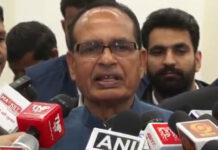New Delhi [India], August 8 (ANI): India’s strong domestic demand and the robust performance of its services sector will help cushion the economic impact of steep new US tariffs imposed as a penalty for continued imports of Russian crude oil, according to a report by Moody’s Ratings.
The report however also said that, if India maintains Russian oil purchases despite the penalty, real GDP growth could slow by around 0.3 percentage points from its current forecast of 6.3 per cent for FY2025-26.
“We project that real GDP growth may slow by around 0.3 percentage points compared with our current forecast of 6.3 per cent growth for fiscal 2025-26 (ending March 2026). However, resilient domestic demand and the strength of services sector will mitigate the strain.” noted the report.
On August 6, US President Donald Trump signed an executive order slapping an additional 25 per cent “penalty” tariff on Indian goods, citing India’s sustained purchases of Russian oil despite Western sanctions. This is on top of the 25 per cent reciprocal tariff announced earlier, effectively doubling the tariff rate on Indian exports to the US, its largest export market. The rate is significantly higher than the 15-20 per cent levies faced by most Asia-Pacific nations, potentially denting India’s competitiveness in global trade.
The order, which takes effect 21 days from signing, leaves a short window for negotiations. Moody’s noted that India’s response will be critical in determining the eventual effect on growth, inflation and external balances.
India has sharply increased imports of Russian crude since 2022, taking advantage of discounted rates as traditional buyers retreated following Moscow’s invasion of Ukraine. Russian oil accounted for 35.5 per cent of India’s total crude imports in 2024, up from just 2.2 per cent in 2021, with the import bill surging to USD 56.8 billion from USD 2.8 billion over the same period. Only China bought more Russian crude than India last year.
The report noted that while there will be a blow to manufacturing, especially in high-value sectors such as electronics and textile, strong domestic consumption and services exports will offset some of the losses in near-term.
Alternatively, reducing Russian oil imports to avoid the tariff will have its own challenges. India will have to struggle for sufficient alternative supplies, leading to potential disruptions and higher energy costs. Shifting away from discounted Russian crude will also drive up inflation and widen the current account deficit.
Cheap Russian oil has played a key role in checking India’s inflation, which is at a multi-year low. Moody’s warned that abandoning these purchases could reverse that trend. However, it noted that India’s substantial foreign exchange reserves provide a buffer against external shocks.
The report anticipates that while the immediate impact of the tariff escalation may be limited by resilient domestic demand, it cautioned that sustained tariff disadvantages versus regional peers could undermine India’s long-term manufacturing and investment goals. (ANI)

















